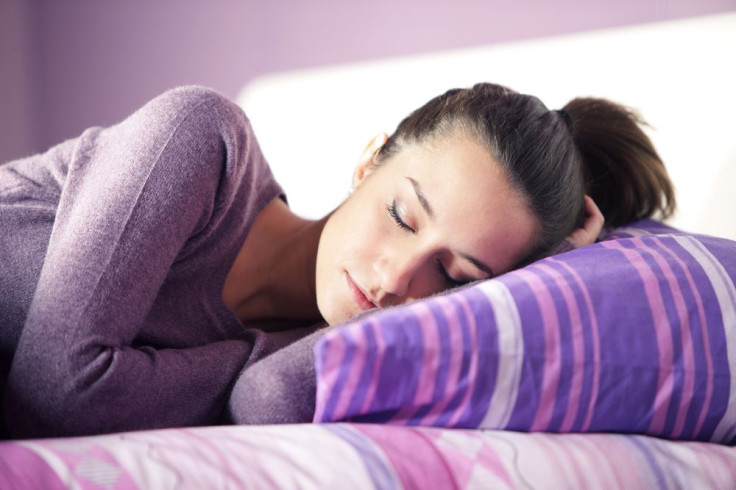Lateral Sleeping Position Influences Clean-Up Of Brain's Metabolic Waste Products, Halts Neurological Diseases

When we all go to bed, we tend to sleep on our back, side, stomach, or assume the fetal position. Our body posture when we sleep can influence our personality, well-being, and even our brain health. According to a recent study published in the The Journal of Neuroscience, sleeping on our side rather than our back or stomach can allow the brain to discard waste products, therefore reducing the risk of Alzheimer’s and other neurological diseases.
Most sleepers will find it difficult to record their posture during sleep, but the placement of our head, back, arms, and legs can influence our systematic health. Typically, the best sleep position is either on the back or the side. These positions support the spine and the neck, which leads to a good night's sleep and helps prevent injuries in the long run. In a 2007 study published in The Internet Journal of Allied Health Sciences and Practice, researchers found most people favored the side-sleeping position, and they were less likely to report waking up during the night bothered by neck, shoulder, or arm pain, compared to others who slept in any other position.
Dr. Helene Benveniste, Principal Investigator and a Professor in the Departments of Anesthesiology and Radiology at Stony Brook University School of Medicine, and her colleagues sought to explore how sleeping position affects brain health when it comes to discarding metabolic waste products. Rodent models were used to examine the glymphatic pathway — where cerebrospinal fluid (CSF) filters through the brain and exchanges with interstitial fluid (ISF) to clear waste. This is similar to the way the body's lymphatic system clears waste from organs. It is during sleep that the glymphatic pathway is most efficient. Amyloid and tau proteins, which are chemicals that negatively affect brain processes if they build up, are commonly found in brain waste.
In the study, magnetic resonance imaging (MRI) was used to observe the glymphatic pathway in rodents. MRI technology and kinetic modeling was used to measure the exchange rates of the fluids CSF and ISF in rodents who were given anesthesia as they slept on their sides, backs, and stomachs. The rodents slept in three positions: lateral (side), prone (down), and supine (up).
The findings revealed the glymphatic transport was the most efficient in the lateral position compared to any other. This adds further support to the belief that sleep subserves a particular biological function of sleep — to “clean up” the mess that builds up while we’re awake. "It is interesting that the lateral sleep position is already the most popular in human and most animals — even in the wild — and it appears that we have adapted the lateral sleep position to most efficiently clear our brain of the metabolic waste products that built up while we are awake," said Dr. Maiken Nedergaard, in the news release.
Furthermore, adjusting our sleep position is essential to ward away neurological diseases that have been linked to sleep disturbances. For example, many types of dementia are linked to sleep disturbances, including difficulties in falling asleep. This suggests such disorders are linked in some way to brain waste not being eliminated correctly. This can accelerate memory loss and Alzheimer’s disease.
A similar 2013 study published in the journal Science discusses how sleep helps restore the brain by flushing out the toxins that build up during waking hours. This highlights the important role sleep plays in health and disease. Certain neurological disorders might be prevented or treated by focusing on how the glymphatic system functions.
Understanding how and when the brain activates the glymphatic system and clears waste can help us figure out how to make it work efficiently.
Until then, sleeping on our side will not only give us a good night’s sleep, it can keep our brain power on.
Sources: Lee H, Zie L, Yu M et al. The Effect of Body Posture on Brain Glymphatic Transport. The Journal of Neuroscience. 2015.
Gordon SJ, Grimmer KA, Trott P. Sleep Position, Age, Gender, Sleep Quality and Waking Cervico-Thoracic Symptoms. The Internet Journal of Allied Health Sciences and Practice. 2007.
Xie L, Kang H, Qiwu X et al. Sleep Drives Metabolite Clearance from the Adult Brain. Science. 2013.



























